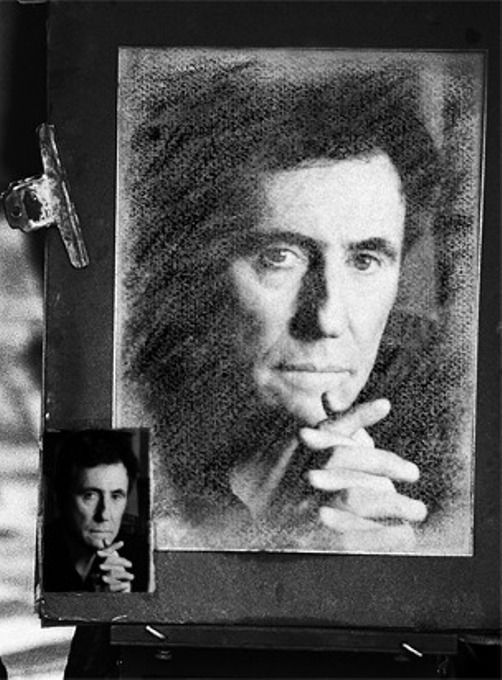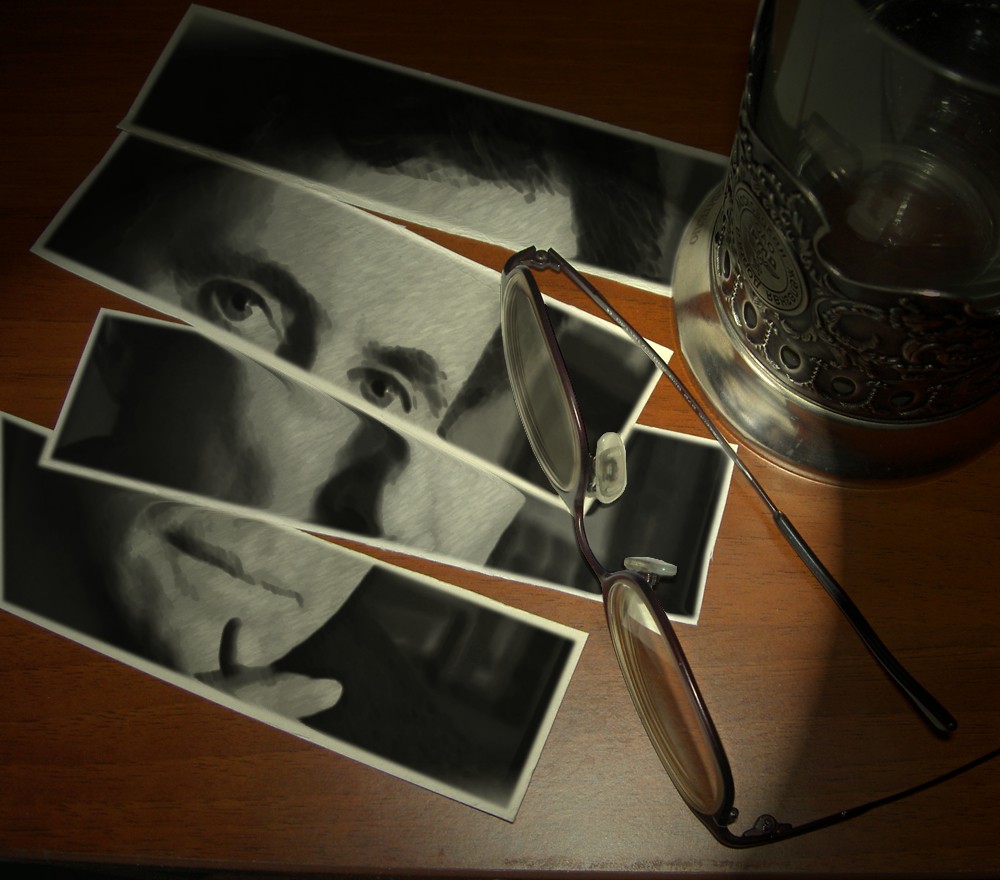This list will be updated as various news outposts provide their reviews of the second season of In Treatment. I must say that the initial buzz is overwhelmingly and gratifyingly POSITIVE. Hooray! Everyone seems to have finally figured out what WE have known all along!
Posted April 18:
The National Post [Tthis article is no longer available at The National Post website]
Robert Cushman admits–
“I was very sniffy about the first season of In Treatment. I said that this show about a psychologist and his patients was just another medical soap, more highfalutin than most, but still focusing on the practitioner rather than on those practised upon. I have to eat crow. The second season strikes me as being a quantum leap on its predecessor, but this isn’t because it’s abandoned the things that, first time around, I felt were flaws. It’s kept them, pushed them even further into the centre and proved them to be assets.”
Crow was never so tasty, eh? Good for you, Mr. Cushman!
Posted April 10:
The Los Angeles Times/Matea Gold : Gabriel Byrne feels the burden of being ‘In Treatment’
The star appears in every scene of the HBO drama. ‘It’s a doggedly difficult role to play,’ he says.
[Note: the complete text of the article is included here because it has disappeared multiple times and one day it may disappear completely!]
This is rough ‘Treatment’ for Gabriel Byrne
Gabriel Byrne looked exhausted. Three days earlier, he had wrapped production on the second season of “In Treatment,” the HBO drama in which he plays therapist Paul Weston, and as he sank into a sofa at the network’s midtown headquarters, the Irish-born actor still had heavy bags etched under his eyes.
“It’s a doggedly difficult role to play,” said Byrne, who is in every scene of all 35 episodes, which begin airing tonight. Each was filmed on a Queens soundstage in about two days, a punishing pace that forced the actor to master his lines breathtakingly quickly: by the end, he was up to 12 pages in 30 minutes.
“I didn’t experience the winter in New York at all,” he recalled. “I arrived in the dark and I left in the dark, and all day I was in a room in a chair. It taught me an awful lot about perseverance and stamina and focus and concentration, and not staggering under the weight of it.”
It was a grueling experience to undergo for a quiet drama that attracted a small audience in its first season, despite its many critical plaudits, which included a Golden Globe win and Emmy nomination for Byrne.
But the actor speaks about the series in ambitious terms not usually applied to a television show. “The themes that are examined in this season are reflective of our culture, our society, in a larger context,” he said. “In my opinion, it deals with the loneliness of the kind of communities that we live in. Everything that we took for granted, the stable pillars of society — that’s no longer there. So uncertainty produces fear and anxiety.”
This season finds Paul coping with the aftershocks of his divorce and an ill-fated relationship with one of his patients. Having relocated from Maryland to Brooklyn, he is rebuilding his practice with a new batch of patients: Mia (Hope Davis), a successful lawyer who longs to have a baby; April (Alison Pill), a young architecture student diagnosed with cancer; Oliver (Aaron Shaw), an 11-year-old caught between his divorcing parents; and Walter (John Mahoney), a powerful executive dealing with a professional scandal. As he tries to navigate their issues, Paul also wrestles with the fallout from the death of Alex, a Navy pilot he was treating last year. For help, he turns again to Dr. Gina Toll (Dianne Wiest), his onetime mentor with whom he has a contentious history.
Each episode plays out like a half-hour, one-act play featuring Byrne and another actor, just sitting in a room, talking. The drama builds through the slow reveal of the real trauma behind the patient’s turmoil.
“There’s something about seeing people bare their souls and seeing that this person you’re baring your soul to has just as many warts as you do — it’s fascinating to watch,” said Mahoney, whose last television role was playing Martin Crane on “Frasier.” “I had no intention of doing another series, but you get offered a part like that, and you just don’t turn it down. It was exhausting and exhilarating at the same time.”
A new schedule
The unusual series, based on a popular Israeli show, captured a small but devoted following in its first season. On average, a little fewer than 2 million people watched each episode during its multiple plays on various HBO channels and on-demand, according to the network.
The way that “In Treatment” was scheduled, with a new episode debuting each night of the week, may have been daunting to viewers, said Sue Naegle, HBO’s president of entertainment. In an effort to attract a larger audience, this season’s premiere episodes will air in two blocks on Sunday and Monday nights at 9.
“I hope people watch it, because I think it’s extraordinary,” Naegle said. “But even if the numbers don’t improve greatly, it’s still a success for us. When people like this show, they’re obsessed with it. Because of Gabriel’s performance, they feel a real intimacy with him. It’s voyeuristic, and you feel you’re part of the experience.”
Although the series remains faithful to the story lines in the Israeli version, it underwent changes this season. Production was moved to New York from Los Angeles, in part at the insistence of Byrne, who wanted to be closer to his children. And Warren Leight, a playwright and TV writer who most recently helmed “Law & Order: Criminal Intent,” took over as show runner from executive producer Rodrigo Garcia.
Leight said he decided to make this season more of an adaptation of the Israeli series rather than a strict translation. “Maybe because last year they were so faithful to the Israeli version, they lost the opportunity to find characters that are as relatable to an American audience,” he said.
He tweaked April’s back story, giving her an autistic brother instead of a manic-depressive one, and excised the sense of societal pressure to have a child felt by the Israeli version of Mia, a Sephardic Jew in the original iteration.
Although each patient is wrestling with different issues, a fraught relationship between fathers and children links the various stories together. “What amazed me is watching the crew,” Leight said. “When we got to episodes where fathers were talking about losing their sons to divorce or losing their own dads, you’d see these 55-year-old grips weeping at the monitors. I thought, ‘OK, good.’ We were trying to make sure we understood these people as humans, as opposed to psychological litmus tests.”
Season 2 also marks a change in Paul. “I think you’ll see the therapist more on his game,” Leight said. “You want to see a detective solve crimes, and you want to see a therapist help people. Last year, he was so mired with his divorce and romance with Laura that it spilled over. I think he’s in the process of becoming a more evolved human being.”
A vulnerable lead
For Byrne, the role gave him the chance to explore masculinity in a way different from how it is usually portrayed in contemporary culture.
“There’s no posturing with him,” the actor said. “He’s intensely vulnerable, and he is a very committed professional, but he’s a damaged human being, and he struggles with life, and he’s engaged with his own weaknesses. I like to examine that, as opposed to the stereotypical notion of the strong man who knows the answer to everything and knows how to act in every situation.”
But the burden of such an intense part took its toll. “Listening on-screen is tremendously difficult and really deenergizing,” Byrne said. “And listening is what this role is really all about: showing you’re listening, and yet not over-showing that you’re listening. Because the big trick of it is to try to let the audience see what you’re thinking, and not let the patient see what you’re thinking.”
After every episode, “He would say, ‘This is one of the toughest ones we’ve done yet,’ ” Leight recalled. “I didn’t remind him that he had said that about all the other ones.”
Still, the actor tried to keep the mood light, playing pranks to break up the tension, Mahoney recalled. Once, the two men swapped dialogue, much to the befuddlement of the crew. “For the load that he had, which is a combination of ‘King Lear’ and ‘Long Day’s Journey Into Night,’ I never saw him get short with anybody or lose his temper,” Mahoney said.
“Season 2 was much smoother,” agreed Paris Barclay, one of the show’s executive producers, who directed a third of the episodes in both seasons. Byrne “has the most difficult job in television, and I think this season he was better prepared,” Barclay added. “He knew, ‘This is what it’s going to be like.’ I think his performance is just genius.”
It remains to be seen whether the actor is up for taking on Paul Weston for a third season.
“I could barely get up this morning,” he said with a weak grin. ” ‘I don’t know’ is the answer to that. The thing is, how far can you take the character? I was just so glad to have finished five months of it. And I want to now go on and do something completely different.”
The Boston Globe : [This article is no longer available on the Internet]
“… In Treatment belongs to Byrne, who won a Golden Globe and an Emmy nomination for best actor last year. It’s almost incongruous that Byrne spends most of his screen time sitting down and watching, since his performance is so rich and dimensional…[he] makes the huge task of appearing in almost every scene of this series seem effortless.”
The New York Times : Michelle Orange analyzes the show’s move to Brooklyn and takes a closer look at the writers.
“The show is sort of designed for theater writers,” said Marsha Norman (“ ’night, Mother”), who wrote the new season’s Paul-Gina episodes. “Who doesn’t want to write a two-character play where people sit in chairs?”
“And I just think Gabriel is heaven,” Ms. Norman added, laughing. “I would watch him sit and think about being a therapist, much less actually do it.”
“In Treatment is simply the most addictive TV show on the air (in the cable wires?). As I settled in for a new round of advice and repressed memories, I was reminded of the therapist’s famous last line in the Philip Roth novel Portnoy’s Complaint: “Now, vee may perhaps to begin, yes?” Yes. Grade: A”
PopMatters : Cynthia Fuchs presents an overview of the second season, with tons of spoilers, but her insightful writing makes being spoiled fun. Read at your own risk.
Posted April 2:
Star-Ledger (New Jersey) : Alan Sepinwall is a big IT fan. He offers three articles: the review [no longer available on the Internet], a blog posting with info about how he plans to post after each week’s episodes and provide a venue for conversation about the show, and a behind-the-scenes article [no longer available on the Internet] with lots of juicy inside info from showrunner/head writer Warren Leight and director Paris Barclay. From his review:
“One of the demons Paul is fighting with Gina is his need to be a savior to all his patients… But if that hero complex is bad for his psyche, it makes him both the kind of doctor any patient would be lucky to have and a very appealing, albeit flawed, main character on this incredible, underappreciated drama.”
Newsday [this article is no longer available at the Newsday website] :
“In Treatment fans will fall into this new season like a chocoholic falling into a vat of sundae sauce…Byrne is brilliant and – for the most part – so is this fine and absorbing show.”
“If it is possible to find pleasure in other people’s psychic pain — and obviously it is — there is no better place for it than in the therapy sessions that begin on Sunday night.”
Be careful! This review is teeming with spoilers for Season Two.
Chicago Tribune “The Watcher” Blog : [This article is no longer available on the Internet]
“Weston is a caring — possibly too caring man — whose professional demeanor doesn’t quite mask his conflicting impulses. He’s clearly intelligent, yet he sometimes makes poor decisions; he has a temper, yet he can demonstrate great patience, especially with Oliver (Aaron Shaw) and Walter, who thinks therapy is a joke. It’s hard to picture any other actor making the contradictory aspects of this passionate, self-doubting man come alive in such a realistic way. Yet even when Weston is silent, the resourceful Byrne makes the therapist the compelling center of most sessions.”
The review includes an interview with Gabriel Byrne.
Time Magazine [this is now subscription-only content]
“Byrne is terrific in what may be the toughest role on TV today, and not just in terms of sheer verbiage. Paul is both sounding board and active agent, constantly thinking and teasing out his patients’ agendas and issues while betraying, in his slightest inflections, the personal feelings that come pouring out in his sessions with Gina…” And the review continues: “But like a successful patient, the show has learned and grown, becoming more reliably compelling.”
“It’s not surprising that the HBO drama series “In Treatment” returns for a second season (Sunday, 9 to 10 p.m. EDT) with its radiant intelligence intact, its merciless revelatory eye again trained on everyone in view…” And the review continues: “The distinctive power of this character Gabriel Byrne inhabits with such unfailing mastery has all along been built on hints, then proofs, of vulnerability, a haunting sense of failures in his personal life and chances missed.”
The San Francisco Chronicle : Tim Goodman recants:
“While I stand by my [first] review, based on the earlier episodes of Season 1, I’m willing to confide that Season 2 hooked me a lot quicker and I like the series a lot more now. Call it what you will – personal growth or Season 2 being less cloyingly self-conscious… It’s a strong cast, and Byrne and Wiest continue to deliver incredibly mannered and minutely shaded performances. It’s quite a breakthrough.”
“Byrne, Davis, Pill, Mahoney, and Wiest should all be considered for Emmys. The writing should be a slam dunk to take home awards. TV simply doesn’t get much more genuine or dramatically rewarding as In Treatment, this year or any other.”























Hi, Stella.
Thanks for your updateds: they are very good for me!
(Excuse always my grammar, please)
By By
Dan (or Daniela)
Hi, Daniela. Glad you like them. Reviews are coming in fast now and there seems to be lots of excitement about the new season. I can’t wait for Sunday! I’ll keep posting reviews from major news outlets until there aren’t any more. ;-) Best. Stella
Hi, Stella!
What has happened?
Are not news abaut “in treatment”?
I hope to have latest news, let’s hope for the best!
Bye
Daniela
Sorry for the delay! I lost my home Internet connection. I will add more reviews this afternoon (from work–don’t tell anyone)… :-)